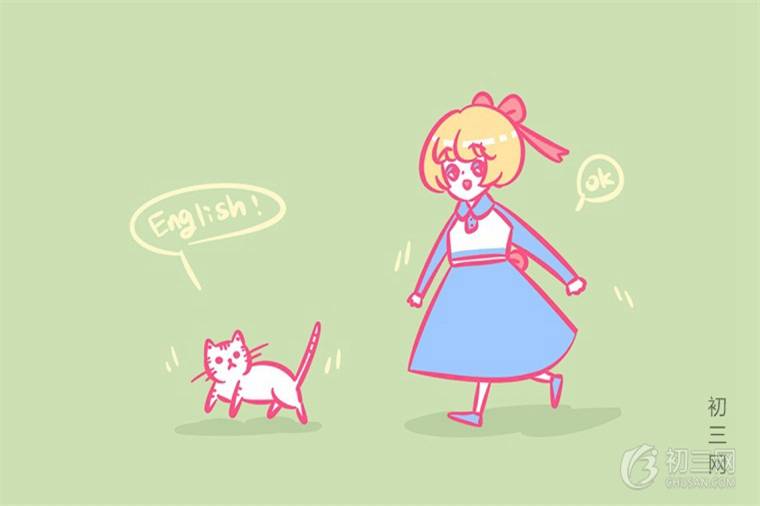请选择
初中生学习英语一定要注意知识点的归纳,下面初三网小编为大家总结了初中英语总复习知识点归纳,仅供大家参考。

可数名词变复数的几种形式
1) 单数名词加s: students, apples, bags, trees, books, brothers.
2) 以s、x、sh、ch结尾的名词加es: glasses, boxes, brushes, matches.
3) 以辅音字母加y结尾的名词,变y为i加es: cities, babies, enemies.
4) 以f或fe结尾的名词,多数变f为v加es: wives, knives.但有些词只加s: roofs,proofs, chiefs.
5) 以o结尾的名词,有些加es: Negroes, heroes, tomatoes, potatoes. 其它加s: radio s, zoos, pianos, photos.
6) 不规则名词:foot→feet, goose→geese, tooth→teeth, child→children, man→men, woman→women, mouse→mice.
7) 单复数同形的名词:sheep,fish,dee.
注意:fish表示种类时,也用fishes这样的形式。
定语从句中只能用which
定语从句中只能用which,不能用that的几种情况:
1. 在介词后面的关系代词用which而不能用that。即“介词+which(代物)” 例如:
The picture for which he paid $1,000 was once owned by a duke.
他花了1000美元买下的画曾为一名公爵所拥有。
The building in which Han Mei studied was very old.
韩梅在里边学习的那幢大楼很旧。
2. 在非限定性定语从句中不能用that。例如:
Crusoe's dog, which was very old now, became ill and died.
克鲁索的狗,现在已经很老了,病死了。
3. 有两个定语从句,其中一个关系代词已有which,另一个宜用that。相反,如果其中一个为that,另一个宜用which。
Edison built up a factory which produced things that had never been seen before.
爱迪生办了一个工厂,生产过去从未见过的东西。
Let me show you the novel that I borrowed from the library which was newly open to us.
让我给你看看我从新开放的图书馆借来的小说。
一般现在时用法如下
1.表示现在的状态: e.g. He’s twelve. She’s at work.
2.表经常或习惯性的动作,常与表示频度的时间状语连用。: e.g. I get up at 6:30 every day.
He reads English every morning.
3.表主语具备的性格、能力和特征。 e.g. I don't like this book.
4.表示客观事实和普遍真理。The earth moves around the sun.
5. 在时间状语从句和条件状语从句中,常用一般现在时代替将来时。e.g. I'll write to you as soon as I arrive there.
以上就是初三网小编为大家总结的初中英语总复习知识点归纳,仅供参考,希望对大家有所帮助。